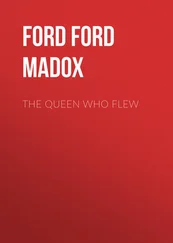Das war ein schweigsame Reiten . . .
Not absolutely silent of course: but silentish! Coming back from the parson’s, where they had dropped the little London sewer rat, they had talked very little . . . Not unpleasant people the parson’s: an uncle of the girl’s: three girl cousins, not unpleasant, like the girl but without the individuality . . . A remarkably good bite of beef: a truly meritorious Stilton and a drop of whisky that proved the parson to be a man. All in candlelight. A motherly mother of the family to take the rat up some stairs . . . a great deal of laughter of girls . . . then a re-start an hour later than had been scheduled . . . Well, it hadn’t mattered: they had the whole of eternity before them: the good horse—really it was a good horse!—putting its shoulders into the work . . .
They had talked a little at first; about the safeness of the London girl from the police now; about the brickishness of the parson in taking her in. She certainly would never have reached Charing Cross by train . . .
There had fallen long periods of silences. A bat had whirled very near their off-lamp.
‘What a large bat!’ she had said. Noctilux major . . . ’
He said:
‘Where do you get your absurd Latin nomenclature from? Isn’t it phalaena . . . ’ She had answered:
‘From White . . . The Natural History of Selborne is the only natural history I ever read . . . ’
‘He’s the last English writer that could write,’ said Tietjens.
‘He calls the downs “those majestic and amusing mountains,"’ she said. ‘Where do you get your dreadful Latin pronunciation from? Phal . . . i . . . i . . . na! To rhyme with Dinah!’
‘It’s ” sublime and amusing mountains,” not “majestic and amusing,"’ Tietjens said. ‘I got my Latin pronunciation, like all public schoolboys of to-day, from the German.’ She answered:
‘You would! Father used to say it made him sick.’ ‘Caesar equals Kaiser,’ Tietjens said . . .
‘Bother your Germans,’ she said, ‘they’re no ethnologists; they’re rotten at philology!’ She added: ‘Father used to say so,’ to take away from an appearance of pedantry.
A silence then! She had right over her head a rug that her aunt had lent her; a silhouette beside him, with a cocky nose turned up straight out of the descending black mass. But for the square toque she would have had the silhouette of a Manchester cotton-hand: the toque gave it a different line; like the fillet of Diana. It was piquant and agreeable to ride beside a quite silent lady in the darkness of the thick Weald that let next to no moonlight through. The horse’s hoofs went clock, clock: a good horse. The near lamp illuminated the russet figure of a man with a sack on his back, pressed into the hedge, a blinking lurcher beside him.
‘Keeper between the blankets!’ Tietjens said to himself: ‘All these south-country keepers sleep all night . . . And then you give them a five-quid tip for the week-end shoot . . . ’ He determined that, as to that, too, he would put his foot down. No more week-ends with Sylvia in the mansions of the Chosen People . . .
The girl said suddenly; they had run into a clearing of the deep underwoods:
‘I’m not stuffy with you over that Latin, though you were unnecessarily rude. And I’m not sleepy. I’m loving it all.’
He hesitated for a minute. It was a silly-girl thing to say. She didn’t usually say silly-girl things. He ought to snub her for her own sake . . .
He said:
‘I’m rather loving it, too!’ She was looking at him; her nose had disappeared from the silhouette. He hadn’t been able to help it; the moon had been just above her head; unknown stars all round her; the night was warm. Besides, a really manly man may condescend at times! He rather owes it to himself . . .
She said:
‘That was nice of you! You might have hinted that the rotten drive was taking you away from your so important work . . .
‘Oh, I can think as I drive,’ he said. She said:
‘Oh!’ and then: ‘The reason why I’m unconcerned over your rudeness about my Latin is that I know I’m a much better Latinist than you. You can’t quote a few lines of Ovid without sprinkling howlers in . . . It’s vastum , not longum . . . “Terra tribus scopulis vastum procurrit” . . . It’s alto , not coelo . . . “Uvidus ex alto desilientis.” . . . How could Ovid have written ex coelo ? The “c” after the “x” sets your teeth on edge.’
Tietjens said:
‘ Excogitabo !’
‘That’s purely canine!’ she said with contempt.
‘Besides,’ Tietjens said, longum is much better than vastum . I hate cant adjectives like “vast.” . . . ’
‘It’s like your modesty to correct Ovid,’ she exclaimed. ‘Yet you say Ovid and Catullus were the only two Roman poets to be poets. That’s because they were sentimental and used adjectives like vastum . . . What’s “Sad tears mixed with kisses” but the sheerest sentimentality?’
‘It ought, you know,’ Tietjens said with soft dangerousness, ‘to be “Kisses mingled with sad tears” . . . “Tristibus et lacrimis oscula mixta dabis."’
‘I’m hanged if ever I could,’ she exclaimed explosively. ‘A man like you could die in a ditch and I’d never come near. You’re desiccated even for a man who has learned his Latin from the Germans.’
‘Oh, well, I’m a mathematician,’ Tietjens said. ‘Classics is not my line!’
‘It isn’t ,’ she answered tartly.
A long time afterwards from her black figure came the words:
‘You used “mingled” instead of “mixed” to translate mixta . I shouldn’t think you took English at Cambridge, either! Though they’re as rotten at that as at everything else, father used to say.’
‘Your father was Balliol, of course,’ Tietjens said with the snuffy contempt of a scholar of Trinity College, Cambridge. But having lived most of her life amongst Balliol people she took this as a compliment and an olive branch.
Some time afterwards Tietjens, observing that her silhouette was still between him and the moon, remarked:
‘I don’t know if you know that for some minutes we’ve been running nearly due west. We ought to be going southeast by a bit south. I suppose you do know this road . . . ’
‘Every inch of it,’ she said. ‘I’ve been on it over and over again on my motor-bicycle with mother in the side-car. The next cross road is called Grandfather’s Wantways. We’ve got eleven miles and a quarter to do. The road turns back here because of the old Sussex iron pits; it goes in and out amongst them; hundreds of them. You know the exports of the town of Rye in the eighteenth century were hops, cannon, kettles, and chimney backs. The railings round St Paul’s are made of Sussex iron.’
‘I knew that, of course,’ Tietjens said: ‘I come of an iron county myself . . . Why didn’t you let me run the girl over in the side-car, it would have been quicker?’
Читать дальше












